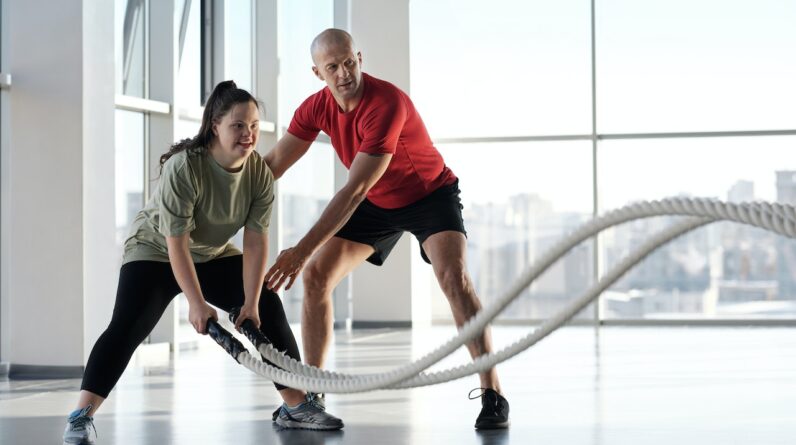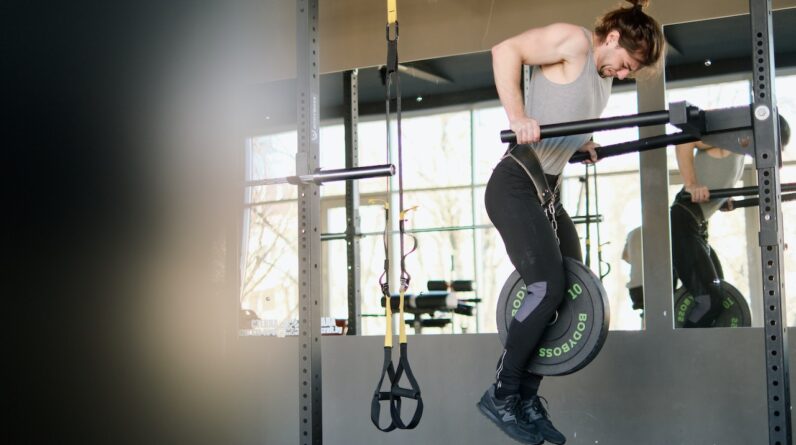
Are you looking for the best workout to help you lose weight? With so many different options out there, it can be overwhelming to know where to start. Fortunately, we’ve compiled a comprehensive guide to help you determine the best workout for weight loss. Whether you’re a seasoned athlete or just starting out, we’ve got you covered. Here’s everything you need to know:
Understanding Weight Loss
Before we dive into the best workouts for weight loss, it’s important to understand how weight loss actually works. Simply put, weight loss occurs when you burn more calories than you consume. This is known as a calorie deficit, and it’s the key to shedding pounds. In order to create a calorie deficit, you need to either consume fewer calories, burn more calories, or a combination of both.
The Importance of Cardiovascular Exercise
Cardiovascular exercise is one of the most effective ways to burn calories and create a calorie deficit. This type of exercise increases your heart rate, which helps you burn more calories during your workout. Additionally, it can boost your metabolism, which helps you burn more calories throughout the day. Here are some of the best cardio exercises for weight loss:
Running
Running is a fantastic way to burn calories and improve your cardiovascular health. Whether you’re running on a treadmill or outside, it’s a great way to get your heart rate up and burn calories.
Cycling
Cycling is another great option for cardiovascular exercise. It’s low-impact, which makes it a good choice for those with joint pain or injuries. Plus, it’s a fun way to get outside and explore your surroundings.
Swimming
Swimming is an excellent full-body workout that burns calories and is easy on your joints. It’s also a great option for those who have injuries or chronic pain.
Strength Training
While cardiovascular exercise is important for weight loss, strength training is also crucial. Building muscle can help you burn more calories, even when you’re not working out. Additionally, it can help improve your overall health and prevent injuries. Here are some of the best strength training exercises for weight loss:
Squats
Squats are a great way to build lower body strength and burn calories. They target your glutes, quads, and hamstrings, and can be done with or without weights.
Lunges
Like squats, lunges are an excellent way to build lower body strength and burn calories. They target your glutes, quads, and hamstrings, and can be done with or without weights.
Push-ups
Push-ups are a classic exercise that target your chest, shoulders, and triceps. They’re a great way to build upper body strength and burn calories.
Putting It All Together
The best workout for weight loss will incorporate both cardiovascular exercise and strength training. Aim to get at least 30 minutes of cardiovascular exercise most days of the week, and incorporate strength training exercises into your routine 2-3 times per week. Here’s a sample workout to get you started:
Warm-up
- 5 minutes of light cardio (walking, jogging, cycling, etc.)
Cardiovascular Exercise
- 20 minutes of running, cycling, or swimming
Strength Training
- 3 sets of 10 squats
- 3 sets of 10 lunges
- 3 sets of 10 push-ups
Cool-down
- 5 minutes of stretching
Conclusion
In conclusion, the best workout for weight loss will incorporate both cardiovascular exercise and strength training. By creating a calorie deficit through exercise and healthy eating, you can successfully shed pounds and improve your overall health. Remember to start slowly and gradually increase the intensity of your workouts as you get stronger and fitter. And don’t forget to listen to your body and rest when you need to. With dedication and consistency, you can achieve your weight loss goals and feel confident and healthy in your own skin.
FAQs
- Can I just do cardio for weight loss? While cardiovascular exercise is important for weight loss, strength training is also crucial. Building muscle can help you burn more calories, even when you’re not working out.
- How often should I exercise for weight loss? Aim to get at least 30 minutes of cardiovascular exercise most days of the week, and incorporate strength training exercises into your routine 2-3 times per week.
- How many calories should I eat to lose weight? The number of calories you should eat to lose weight depends on several factors, including your age, gender, height, weight, and activity level. It’s best to consult with a registered dietitian or healthcare provider to determine the appropriate calorie intake for your individual needs.
- What should I eat to fuel my workouts? To fuel your workouts, focus on eating a balanced diet that includes plenty of lean protein, whole grains, fruits, and vegetables. It’s also important to stay hydrated by drinking plenty of water.
- How long will it take to see results? The amount of time it takes to see results from your workouts depends on several factors, including your starting weight, fitness level, and diet. However, with consistency and dedication, you should start to see improvements in your fitness and weight within a few weeks to a few months.
- Can I lose weight without exercise? While exercise is an important part of a healthy weight loss plan, it is possible to lose weight without exercise by making dietary changes. However, incorporating exercise into your routine can help you burn more calories and improve your overall health.
- Is it safe to exercise if I have an injury? It’s important to consult with a healthcare provider before starting a new exercise routine if you have an injury. Depending on the type and severity of the injury, some exercises may need to be modified or avoided altogether.
- Can I do the same workout every day? While it may be tempting to stick to the same workout every day, it’s important to switch up your routine to prevent boredom and challenge your body in new ways. Additionally, doing the same workout every day can lead to overuse injuries.
- How do I stay motivated to exercise? Staying motivated to exercise can be a challenge, but setting achievable goals, tracking your progress, and finding a workout buddy can all help keep you on track. Additionally, finding activities that you enjoy and incorporating variety into your routine can help prevent boredom.
- What should I do if I hit a weight loss plateau? If you hit a weight loss plateau, don’t get discouraged. It’s common for weight loss to slow down or even stop temporarily. To break through a plateau, try switching up your exercise routine, tracking your calorie intake more closely, or consulting with a registered dietitian or healthcare provider.







